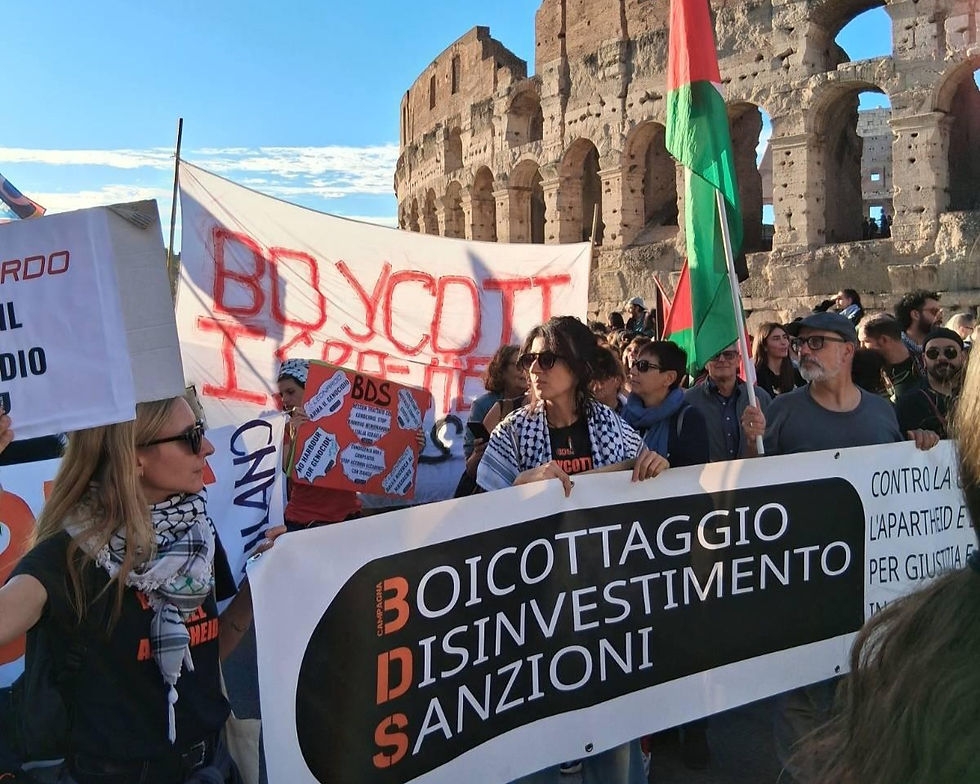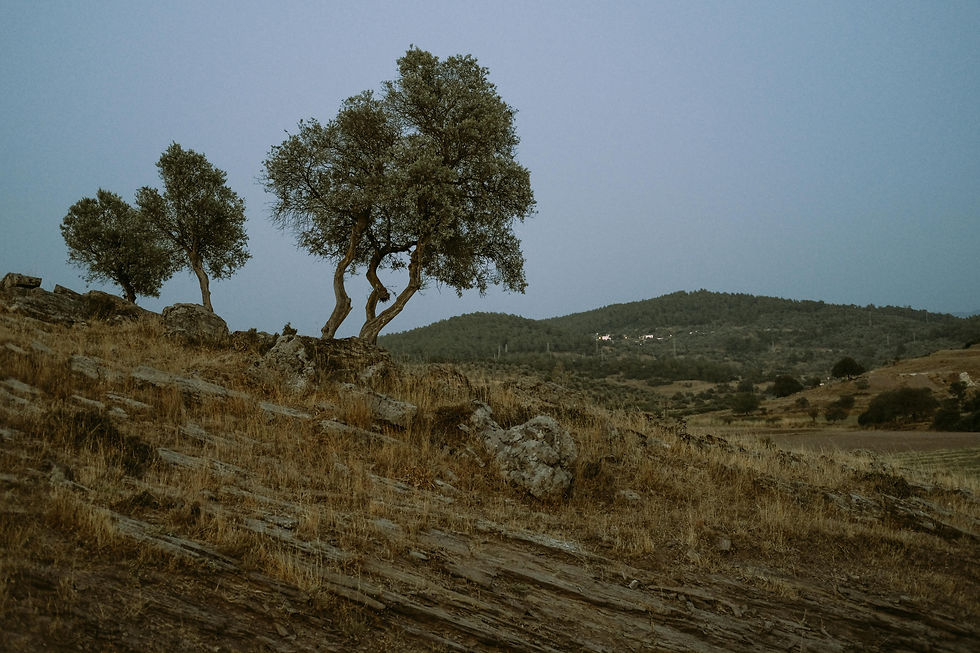Memorials of Our Grief: Building a New World
- Matt Kletzing

- Apr 17, 2020
- 5 min read
Updated: Oct 26, 2021

Imagine a world where you, your neighbors, and the world’s bulging population -- all 7.8 billion of us -- never worry about our basic needs. No more poverty. No malnutrition. Fly-infested faces of 5 year old kids no longer appear on your TV between reruns. Widespread disease eradication. Girls going to school. Healthcare, education, food, clothing - all worries of the past.
You work at most for 3 days a week. You spend time with those you love, pursuing the things you love, caring for the home you love. There is plenty of wealth to go around because you are judged -- and compensated -- for your contributions to society rather than how fast you add pennies to the pockets of corporate overlords. Pointless jobs in finance, insurance, and selling stuff that no one needs no longer exist. Maybe no one has a $750 million yacht, but we live a satiated luxury that deconcentrates wealth, a frugal abundance of degrowth.
We recognize the scars of our past, the brutal, break-neck centuries of building cities on slavery. Awareness gives way to amnesty. We cancel debt of developing nations (because historically speaking, we in the developed world are exponentially more indebted to them anyway). We cancel student debt. We stop trading in debt. We stop migrating wealth but refusing refugees. We say sorry. No more countries in the Global South with GDPs the size of small cities in the Global North. Tax dodging is neither tolerated nor permitted. No multinational corporations filling off-shore bank accounts with the proceeds of their off-shore drilling.
We rewrite the rules of trade. Rewrite the rules of ownership. Companies are no longer treated as people. People are treated as people. (Imagine that!) Workers own and owners work. You have a say in every decision that affects you. Where absolutely necessary, we extract from extractive industries to subsidize society, rather than the other way around. We build a solidarity economy.
This is the way the world can be -- is already starting to be -- if we make memorials of our grief.
Our demands to take us there
The first step in changing anything is to stop denying the facts. “If capitalism is so great, why does it need to be bailed out by socialism every 10 years.” I laughed when this little nugget popped into my newsfeed. The embarrassed sort of uncomfortable laughter that ends in a grimace. The fact is, we’ve been feeding ourselves fat with decades of lies about neoliberalism’s inherent connection to freedom and democracy.
Neoliberal democracy has made few of us freer. It’s as far away from living democracy as totalitarian communism is from Marxist socialism. And yet, we are spooked into taking the self-effacing treats of the greatest trick -- and conflating economic and political doctrines.
Even in this time of crisis, we’re grateful for the meager handouts, not batting an eye at the huge bailouts afforded to the ‘people’ known as companies. Who are the billion and trillion dollar economic stimulus plans really designed to support? People, citizens, taxpayers? Or companies, corporations, and stockholders?
The UK’s original £330 billion stimulus package offers nothing to everyone, and the country’s 5 million self-employed people only received support after a backlash to the initial plan. A litany of offers to private companies, but people only benefit on the merit of their identity as employees, not citizens. The United State’s $2.2 trillion dollar package offers increased unemployment benefits and a one-time $1,200 tax credit to each adult that is earning money -- as long as they aren’t one of the millions of undocumented workers. But the majority? It’s to bailout airlines, for-profit hospitals, etc.
Look to Australia, Canada, Germany, India. The pattern replicates like a virus -- a $10 trillion bailout for the world’s economy. With this, we could have given every person on the planet $1,282. But most people will see none of it.
Socialism is not actually bailing out capitalism. No. The people, through public funding, are bailing out the profit-mongering neoliberals that actually run our so-called democratic societies. Socialism for corporations and capitalism for everyone else.
Crises have a way of bringing things into perspective, of clearing the haze. Seven demands, made now, while our hearts and minds are clear, can change the future of our planet forever.
Universal basic income - We call for governments to guarantee a basic income, with no strings attached for all citizens as a civic right.
Four-day work week - We call for employers in all sectors to adopt a permanent 4-day flexible work-week to free up time for well-being, creativity, and learning.
Debt amnesty - We call for institutions to release the trillions of dollars of global debt to help ensure weath stays within the borders of already unstable developing economies.
Tax-dodging - We call for a mandatory and universal taxation on all multinational corporations and increased policy and enforcement to abolish all forms of tax-dodging.
Trade rules - We call for democratic control of trade rules, rewriting them to provide fair regulations for all countries rather than benefiting the wealthiest and most powerful.
Worker ownership - We call for companies to deliver control to workers over shareholders and stimulus packages that prioritize citizens over corporations.
Shifting subsidies - We call for new laws to govern the application of subsidies, so that only industries with positive social or environmental impact can receive them.
The way neoliberalism uses shocks to extend its reach can be turned on its head. We have an immense opportunity now to move the goalposts and set new bars. Despite the haze and mirrors, it’s incredible, for example, that even the most conservative governments are pushing socialist measures. Donald Trump even invoked the Defense Production Act, effectively (sort of) nationalizing production for medical supplies. Let that sink in. Trump nationalizing production.
Our hopes for a new normal
We don’t want to go back to “normal” when we emerge from our isolation. We want more justice. We want the fault lines and failures of our current economic system to compel a new narrative.
A world that puts people over profit and redresses historical economic injustice will give us freedom unlike any that neoliberal democracy has delivered. As we grieve for the loss of the world before Covid-19 and the devastation it has caused -- the lost lives and wrecked families and the dreams you were forced to undream -- let’s take heart in the brave people, ideas, and movements who are building a better world for our children. The citizens from all walks of life organising assemblies and committees across all parts of life to create truly people-powered futures.
This idyllic image of the world is not only possible. It is already happening. It’s happening in changes wrought already and in demands gaining ground. This, in part, is what led the UN Secretary General himself to join the call, stating, “The recovery from the COVID-19 crisis must lead to a different economy.”
As Arundhati Roy so eloquently puts it, “Whatever it is, coronavirus has made the mighty kneel and brought the world to a halt like nothing else could…. And in the midst of this terrible despair, it offers us a chance to rethink the doomsday machine we have built for ourselves. Nothing could be worse than a return to normality.”




Comments